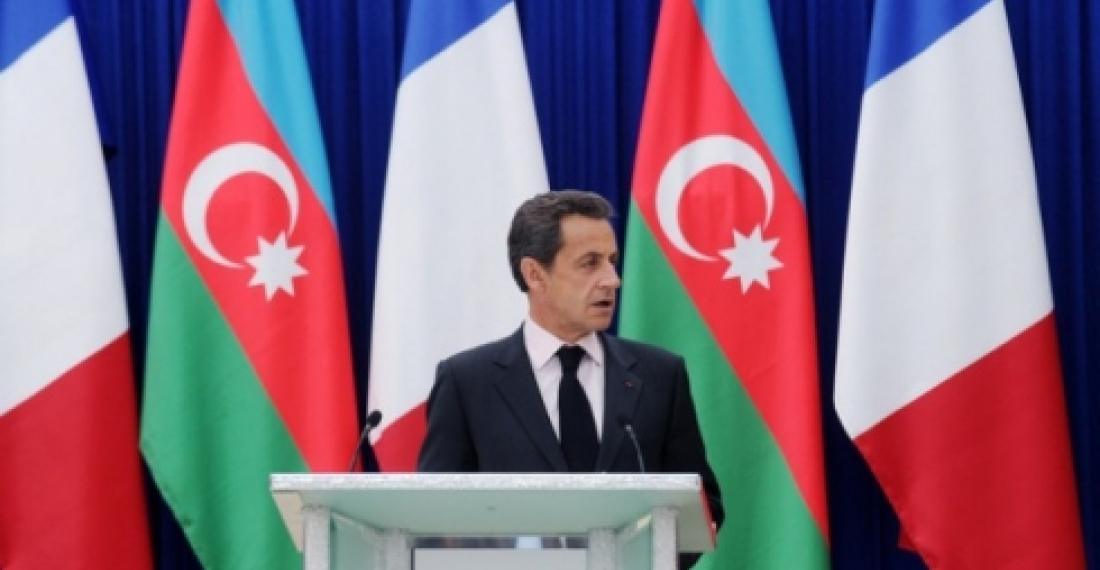The French President Nikolas Sarkozy on Friday evening concluded his brief visit to the three countries of the South Caucasus. During his thirty hour trip to the region the French leader appealed for dialogue between Armenia and Azerbaijan and between Russia and Georgia. Speaking on Tbilisi's Freedom Square, Sarkozy said that "conflict was not a destiny, neither in the Caucasus nor anywhere else".
During his brief visits to Armenia, Azerbaijan and Georgia, President Sarkozy met the leaders of the three countries in their respective capitals.
A speech by the French leader in Armenia, during which he called on Turkey to recognise the killings of 1915 as genocide, and suggesting that France could pass a law criminalising the denial of the genocide, elicited a sharp response from the Turkish government. Turkish Foreign Minister, Ahmit Davitoglu said that “Those who will not be able to face their own history for having carried out colonialism for centuries, for treating foreigners as second-class people, do not have the right to teach Turkey a history lesson or call for Turkey to face its history". Turkey has asked its Ambassador in Paris to lodge a diplomatic protest with the French government about the speech of the President.
source: commonspace.eu
photo: President Sarkozy in Baku (picture courtesy of the Press Service of the President of Azerbaijan)







